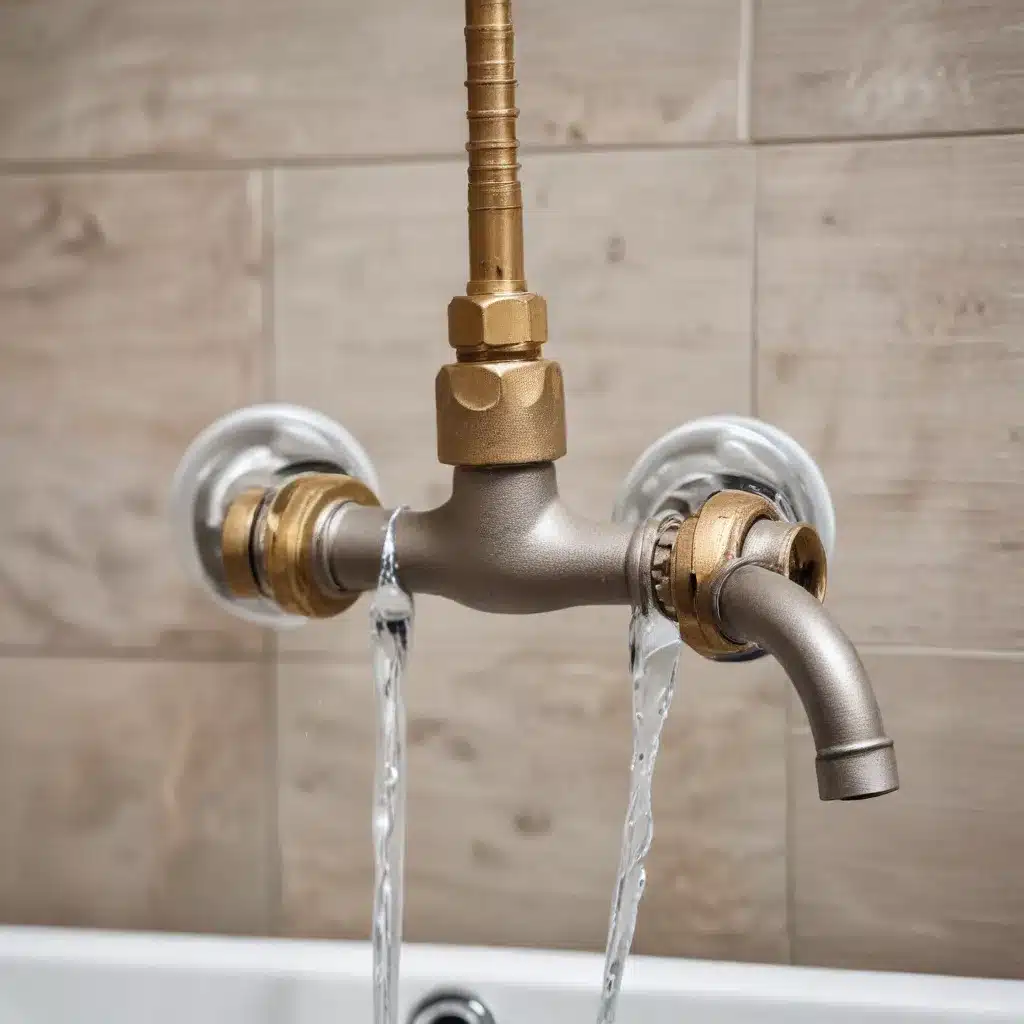
Understanding the Value of Water Conservation
Water is an essential resource that we often take for granted. However, with changing climate patterns, growing populations, and increasing demand, conserving water has become a crucial priority for homeowners. By implementing strategic plumbing upgrades and adopting water-saving habits, you can significantly reduce your household’s water consumption and lower your utility bills, all while contributing to a more sustainable future.
Innovative Plumbing Upgrades for Water Efficiency
Water Treatment Systems
Investing in a water treatment system, such as a reverse osmosis or whole-house filtration system, offers numerous benefits. These advanced systems effectively remove impurities, contaminants, and minerals, providing you and your family with clean, safe, and better-tasting water for drinking, cooking, and everyday use. Not only do these systems enhance water quality, but they also help conserve water by reducing the need for excessive filtering or pre-treatment before use.
Sewage Pumps
For homes with basements or areas below the sewer line, sewage pumps play a vital role in efficient waste disposal. Upgrading to a high-quality sewage pump ensures proper waste management and prevents potential backups, especially in low-lying or older homes prone to drainage issues. By addressing these challenges, you can avoid water waste and prevent costly repairs down the line.
Leak Detection and Fixture Upgrades
Addressing leaks promptly and upgrading older plumbing fixtures can significantly reduce water waste in your home. Fixing leaks in pipes, faucets, and showerheads prevents unnecessary water loss, while replacing outdated fixtures with water-efficient models, such as low-flow toilets, showerheads, and kitchen faucets, can conserve water without compromising functionality.
Energy-Efficient Appliances
When it comes to water conservation, your household appliances play a crucial role. Consider upgrading to energy-efficient dishwashers and washing machines, which not only use less water but also consume less energy, contributing to lower utility bills and a reduced environmental impact.
Filtration Systems for the Kitchen
Installing an under-sink water filtration system in your kitchen provides clean and purified drinking water directly from the tap. These systems eliminate contaminants and improve the taste and quality of your drinking water, promoting healthier hydration for your family while reducing the need for bottled water and the associated waste.
Adopting Water-Saving Habits
While innovative plumbing upgrades are essential, cultivating water-conscious habits in your daily life can also have a significant impact on your overall water consumption. Here are some practical tips to help you maximize water conservation at home:
Turn Off the Tap
When brushing your teeth or washing dishes, avoid letting the water run continuously. Instead, turn off the tap while brushing or filling a dishpan for washing, and only turn it on when rinsing. This simple habit can save up to 8 gallons of water per day.
Shorter Showers
Reducing your shower duration can make a noticeable difference in your water usage. Aim for shorter, 5-minute showers, and turn off the water while lathering up to save even more.
Full Loads Only
Operate your dishwasher and washing machine only when you have a full load. Doing so reduces the number of cycles required, which in turn saves water and energy.
Capture and Reuse
Collect the cold water that runs while waiting for your shower to heat up and use it to water plants or for other household tasks. You can also reuse water from cooking or rinsing vegetables for the same purpose.
Maintain Your Irrigation System
If you have an outdoor irrigation system, ensure it is properly maintained and adjusted to match the changing seasonal needs of your lawn and landscaping. Avoid overwatering and schedule irrigation during the cooler parts of the day to minimize evaporation.
Choose Water-Efficient Landscaping
Consider planting drought-resistant, native species in your yard that require less water for maintenance. Additionally, use soaker hoses or drip irrigation systems to deliver water directly to the roots, reducing waste from sprinklers or hoses.
By combining strategic plumbing upgrades with practical water-saving habits, you can make a significant difference in your home’s water consumption and contribute to a more sustainable future. Consulting with a professional plumber from DD Plumbing and Heating can provide valuable guidance on the most suitable solutions for your home, ensuring optimal efficiency and performance.
Remember, every drop of water saved counts, and by taking proactive steps to conserve this precious resource, you can enjoy the benefits of reduced utility bills, a healthier environment, and the peace of mind that comes with responsible resource management.
Key Takeaways
- Install water treatment systems, such as reverse osmosis or whole-house filtration, to improve water quality and reduce the need for excessive filtering or pre-treatment.
- Upgrade to high-efficiency sewage pumps to ensure proper waste management and prevent potential backups.
- Address leaks promptly and replace outdated fixtures with water-efficient models to conserve water.
- Invest in energy-efficient appliances that use less water and energy, lowering your utility bills and environmental impact.
- Incorporate under-sink water filtration systems in your kitchen for clean, purified drinking water.
- Develop water-saving habits, such as turning off the tap while brushing teeth or washing dishes, taking shorter showers, and running full loads in your appliances.
- Maintain and adjust your outdoor irrigation system to match seasonal needs, and consider water-efficient landscaping options.
- Consult with a professional plumber from DD Plumbing and Heating to identify the most suitable water conservation solutions for your home.
By implementing these plumbing hacks and tips, you can maximize water conservation, reduce your utility bills, and contribute to a more sustainable future for your home and community.


